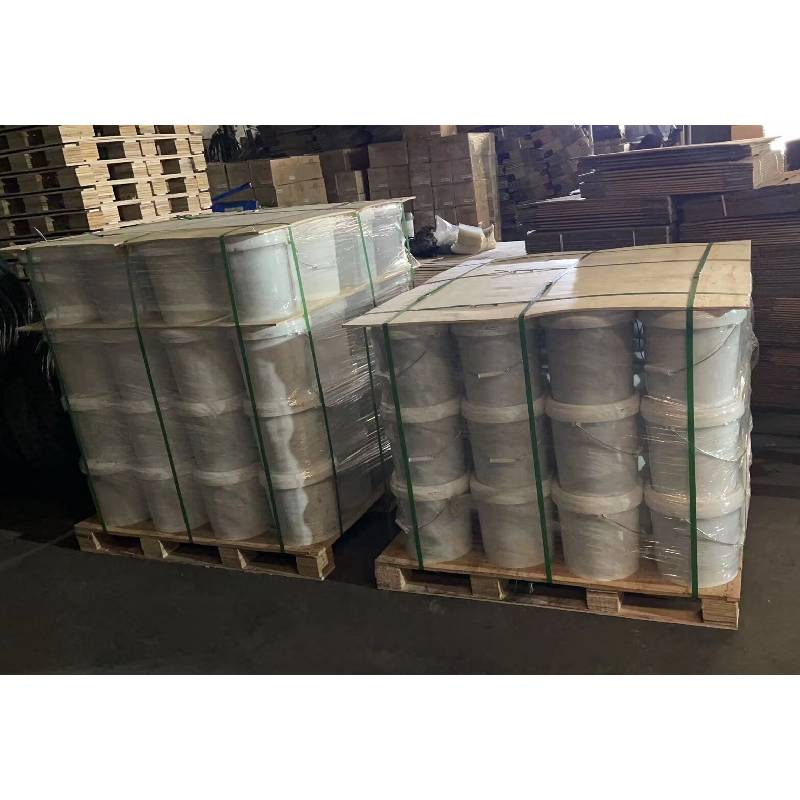
- Mobile Phone
- +8613931874955
- sales@cntcmetal.com
Durable Coated Steel Wire for Versatile Applications in Construction and Crafting
The Versatility and Importance of Galvanized Wire
Galvanized wire, a type of wire that has been coated with a layer of zinc to prevent rusting and corrosion, plays a crucial role in various industries and applications. Its durability, strength, and resistance to the elements make it a preferred choice for numerous uses, including construction, agriculture, and crafts. This article explores the properties, applications, and benefits of galvanized wire, emphasizing why it remains a staple in countless projects.
Properties of Galvanized Wire
The primary characteristic that distinguishes galvanized wire from regular steel wire is its protective zinc coating. The galvanization process involves submerging the wire in molten zinc, creating a robust barrier against environmental factors such as moisture and oxygen that contribute to rust. This coating significantly extends the wire's lifespan, making it ideal for outdoor and high-humidity applications.
Another noteworthy quality of galvanized wire is its tensile strength. Galvanized wire can withstand considerable stress and tension, making it suitable for a wide range of demanding applications. Additionally, it is available in various gauges, allowing users to select the appropriate thickness for their specific needs.
Applications of Galvanized Wire
1. Construction In the construction industry, galvanized wire is commonly used for reinforcing concrete and creating fencing systems. Its strength and resistance to corrosion make it ideal for securing building materials and providing structural support. Whether it's wire mesh for ceilings or fencing to protect properties, galvanized wire is a fundamental component.
2. Agriculture Galvanized wire is extensively used in the agricultural sector for various purposes, including fencing, trellising plants, and supporting crops. Farmers rely on galvanized wire to create durable fencing solutions that protect livestock and crops from predators and environmental damages. Its longevity is particularly beneficial in rural areas where maintenance can be challenging.
galvanized wire

3. Crafts and DIY Projects Galvanized wire has gained popularity in the crafting community. Its malleability allows for easy manipulation and shaping, making it ideal for creating decorative items, jewelry, and functional crafts. Artists appreciate its rustic appearance, which adds a unique touch to handmade products.
4. Industrial Uses Beyond construction and agriculture, galvanized wire is employed in various industrial applications, including manufacturing, shipping, and wire ropes. It is often used in the production of springs, cables, and other components that require resilience against wear and tear.
Benefits of Using Galvanized Wire
The advantages of using galvanized wire extend beyond its basic properties. One of its significant benefits is cost-effectiveness. While the initial investment in galvanized wire might be higher than non-coated alternatives, its longevity and reduced maintenance needs lead to lower overall costs in the long run.
Furthermore, galvanized wire is environmentally friendly. The zinc coating not only protects the wire but can also be recycled, contributing to sustainable practices in various industries. As awareness of environmental concerns grows, the demand for sustainable materials like galvanized wire continues to rise.
Conclusion
In conclusion, galvanized wire is an essential material across multiple industries due to its outstanding durability, strength, and resistance to corrosion. Its applications range from construction and agriculture to crafts and industrial uses, showcasing its versatility. The benefits of using galvanized wire, including cost savings and environmental sustainability, further solidify its position as a favored choice among professionals and hobbyists alike. As we continue to innovate and explore new applications, galvanized wire will undoubtedly remain a vital tool in the toolbox of modern society. Whether for practical uses or creative endeavors, its impact is both significant and lasting.
share:
-
Your Source for Concrete Wall Ties and Masonry AccessoriesNewsJul.10,2025
-
Unlocking the Power of Iron Wire for Every ProjectNewsJul.10,2025
-
Explore Advanced Chain Wire and Stainless Steel Mesh FencingNewsJul.10,2025
-
Discover the Benefits of Annealed Wire ProductsNewsJul.10,2025
-
Discover China Stainless Steel Wire Mesh SolutionsNewsJul.10,2025
-
Build with Confidence Using High-Performance Masonry AccessoriesNewsJul.10,2025
-
Why Sacrificial Formwork Is Redefining Underground ConstructionNewsJun.06,2025



















